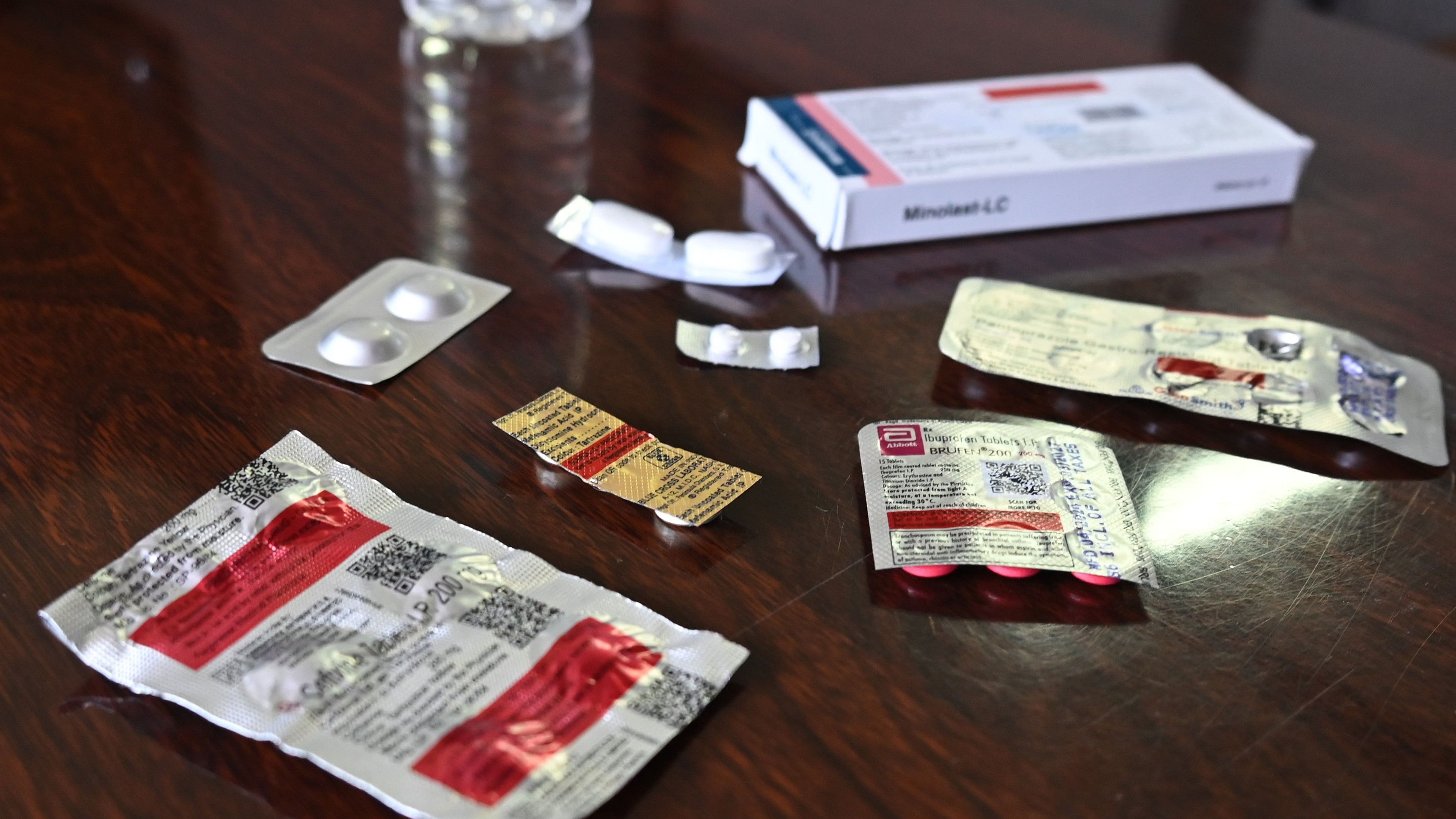
According to the Drugs and Cosmetics Rules, 1945, Schedule H, drugs are those that shall “not be sold by retail except on, and in accordance with the prescription of a Registered Medical Practitioner.” However, these drugs are openly available over the counter at most pharmacies across the city.
Credit: DH Photo/V Pushkar
Ask for an anti-nausea tablet or a painkiller for a bad headache in any local pharmacy and chances are you will get it, no questions asked. In most cases, if you were to take a look at the labelling on the back, you’d see a red warning: “Schedule H prescription drug”.
According to the Drugs and Cosmetics Rules, 1945, Schedule H drugs are those that shall “not be sold by retail except on and in accordance with the prescription of a Registered Medical Practitioner”. In other words, they must not be sold over the counter.
However, a DH reality check in nearly 20 pharmacies across the city, including Agara, Hennur, Indiranagar, Mathikere, Vyalikaval, Malleshwaram, and Jayanagar, along with citizens’ stories, indicated that there is virtually no regulation of over-the-counter sales of Schedule H drugs in the city.
For example, in a pharmacy on the Indiranagar Main Road, this reporter was able to access two painkillers, an anti-nausea and indigestion medicine; an oral medicine sometimes used for allergy-related stuffy nose and another for severe acne.
Many residents access these medicines OTC without knowing they are not to be sold as such or simply due to convenience and common knowledge of some medicines having worked in the past.
“Pain in certain joints, headaches, and vomiting are not seen as something that needs attention from a doctor in our household, unless a specific threshold is breached or something out-of-the-blue is observed. In such cases, we rely on previous guidance from doctors and act based on that,” said Vishwas Setlur, a private firm employee from northeast Bengaluru.
Vinod Gopalakrishnan, a resident of Indiranagar, said: “The pharmacies I’ve gone to rarely ask for a prescription unless it’s very strong medication”.
Dr Vasu H V, diabetes specialist and founder, Active Health Diabetes Centre in Bengaluru, said that there is also the risk of people directly approaching pharmacists for prescriptions. “The pharmacist will prescribe any painkiller over the counter, which might not be helpful. For example, if someone has a stomachache due to gastritis, a general painkiller by the pharmacist who doesn’t know they have this underlying condition can worsen their pain,” he said.
A resident of Basaveshwara Nagar also obtains diabetes and hypertension medicines over the counter, all of which are Schedule H drugs. He attributed this to familiarity.
Adverse effects
Dr Kishan A, professor of nephrology, Institute of Nephro-Urology, explained that while painkillers like Ibuprofen can accelerate kidney damage in people with pre-existing heart or kidney conditions, in rare situations, even young people who don’t have kidney disease could develop one due to long-term use of painkillers.
Overuse of antibiotics also contributes to antimicrobial resistance (AMR), a growing concern, said Swetavalli Raghavan, advisor to the state government on AMR and One Health.
Dr Arvind Kasthuri, community medicine specialist and chief of medical services at a private hospital, said that doctors have been seeing a rise in cases where patients cannot be administered a single antibiotic for treatment due to over-the-counter self-medication.
This is one manifestation of a larger issue, he noted. “I do not at all approve of self-medication but it is also unrealistic to insist that everyone must go to a doctor to get a prescription and then go to a chemist for medicines because that level of facilities don’t exist today. In an ideal world, consultation shouldn’t cost so much that it deters people from getting a prescription each time they want the medicine,” Dr Kasthuri said.
Swetavalli added that bringing in new laws or banning sales and imposing penalties on pharmacists is not the solution for the misuse of scheduled drugs. “Self-medication stems from inadequate and inequitable access to affordable, quality healthcare. India needs to urgently upskill its health workforce, update medical education curriculum, improve infrastructure of public hospitals, and regulate pricing on drugs, and health- related services,” she said.
Dr Umesh S, Drugs Controller, claimed that drug inspectors regularly conduct checks and test purchases at pharmacies to keep OTC sales of Schedule H drugs in check. “If we get to know about such a violation, we cancel licences for a period of 15-30 days and file cases under section 27 of the Drugs and Cosmetics Act, 1940, based on the severity of the violation. We have been taking action against several pharmacies,” he said.